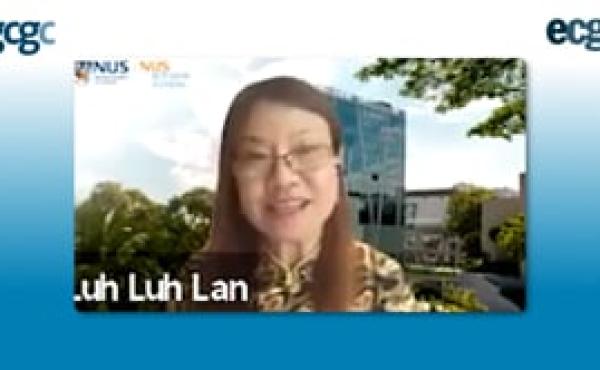Corporate Governance in Singapore


The Singapore corporate governance regulatory framework is contained in certain mandatory rules, comprising mainly of the Companies Act (CA), the Securities and Futures Act (SFA) and, in respect of companies listed on the Singapore Exchange (SGX), the Listing Manual, and best practice recommendations as primarily set out in the form of the Code of Corporate Governance (Code) and the accompanying Practice Guidance issued by the Monetary Authority of Singapore (MAS).
The CA is the principal piece of legislation that applies to all companies (both private and public) incorporated in Singapore and, in some limited instances, to foreign corporations with business operations in Singapore.
Entities listed on the SGX are also subject to continuing obligations in the form of listing rules in the Listing Manual. Such rules include requirements on the manner in which securities are to be offered, regulate transactions with interested persons and prescribe the disclosure obligations of listed issuers. The principal function of these rules is to provide a fair, orderly and transparent market for the trading of securities.
The SFA enforces the disclosure requirements of the Listing Manual by making it an offence for a listed company to intentionally or recklessly fail to meet its disclosure obligations under the Listing Manual.2 In the case of a negligent failure, a listed company may be subject to civil penalties and liabilities pursuant to the SFA.3
In addition, in the case of companies listed on the SGX, the SFA empowers the SGX to apply to the courts for a court order to enforce compliance with the listing rules.4 The SFA also prescribes the statutory prospectus requirements and the disclosure obligations of directors, chief executive officers (CEOs) and substantial shareholders of a listed company in relation to their interests in securities.
The listings and enforcement framework for listed companies has been further enhanced since 2015 with SGX's establishment of three independent committees (namely the Listings Advisory Committee, the Listings Disciplinary Committee and the Listings Appeals Committee), and amendments to the Listing Manual to empower the SGX to impose a greater range of sanctions. Under the enhanced enforcement framework, the SGX has the authority to impose sanctions, such as issuing fines to a listed company of an amount not exceeding S$250,000 per contravention (subject to a maximum of S$1 million per hearing for multiple charges), requiring a listed company to implement an effective education or compliance programme, requiring a listed company's directors or executive officers to undertake a mandatory education or training programme, and requiring the resignation of a director or executive officer.5
The Code was first introduced in Singapore in March 2001, and was revised in 2005, 2012 and 2018. The Code provides principles and provisions designed to support compliance with the said principles to listed companies and their boards with the aim of encouraging a high standard of corporate governance. Under the latest iteration of the Code's comply or explain approach, listed companies are expected to comply with the provisions in the Code, and variations from the provisions are acceptable to the extent that companies explicitly state and explain how their practices are consistent with the aim and philosophy of the relevant principle underlying such provision. Under the Listing Manual, a listed company must comply with the principles of the Code. Where a listed company's practices vary from any provisions of the Code, it must explicitly state, in its annual report, the provision from which it has varied, explain the reason for variation and explain how the practices it has adopted are consistent with the intent of the relevant principle. The MAS has also issued accompanying Practice Guidance that complements the Code by providing guidance on the application of the principles and provisions and setting out best practices for companies. Adoption of the Practice Guidance is voluntary.
The revised 2018 Code applies with effect to annual reports covering financial years commencing from 1 January 2019.
This chapter explores the key features of these rules and regulations from a corporate governance perspective. Financial institutions such as banks, insurers and finance holding companies have their own sets of corporate governance guidelines issued by the MAS, which are not addressed in this chapter.
.....
Resources:
For further information on corporate governance in Singapore consult https://thelawreviews.co.uk/edition/the-corporate-governance-review-edi…
.....
Contact:
Monetary Authority of Singapore
10 Shenton Way MAS Building
Singapore 079117
Tel: (65)-6225-5577
Fax: (65)-6229-9229





















